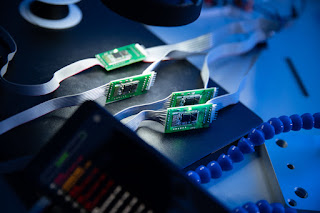Attack after temptation
Attack after temptation
Knowing that her picture was circulating on a porn site, the disoriented girl approached the police. It is known that the picture was made by distorting one of his own taken a year ago. Many women like him were distorted. This is what happened in Singapore last year.
In July last year, a young woman from Hyderabad approached the police on the same charge. The accused chased after him and secretly took pictures. He distorted that picture and left it on a site.
The link between the two events is the same. That is, the images were distorted using an app called DipNude. The app was launched in April last year by a company in Estonia, a European country. With this app running on artificial intelligence or artificial intelligence, any ordinary picture of a human being could be turned into a nude picture. Within a couple of months, there was a storm of criticism as the app began to be abused around the world. The company acknowledges that the app was created for "fun" purposes but could be used for malicious purposes. The app company picked up the app with a statement in June last year. Even if they took responsibility, there was a fear that the technology could not be erased forever from this limitless world of the Internet.
Evidence that the concern is not false has been found several times since. Recently, the cloud of fear has thickened in this country as well. Mumbai police have noticed that Dipneud is back in the cyber world. Dipnude technology is found on multiple sites, even on Twitter. Recently, Maharashtra Police Cyber Crime Branch Superintendent Balsingh Rajput told the media that they have also formed a team to monitor the matter and take strict action.
The current situation is also increasing the dangerous nature of such apps. In the cyber world, especially in social media, the movement of the general public has increased a lot to prevent COVID. According to the survey, the use of social media has increased by 6 percent in the first week of the lockdown since the week before the lockdown. Before the lockdown, one person spent an average of 150 minutes on social media every day. In the first week of the lockdown, it increased to 260 minutes. According to the survey, 75 percent more people now spend time on Facebook, Twitter, and WhatsApp than before the lockdown.
Giving personal photos to the masses on social media is becoming a big feature of spending this time. There is no guarantee that the image will not be used for blackmailing by miscreants. Nowadays, through various apps, there is a tendency to paint one's own picture in the style of painting or to look at the imaginary shape of one's old age. All such apps work with artificial intelligence. And to do that, you have to give access to those apps in the mobile gallery, that is, the repository for keeping your personal photos. There is also a risk of danger.
The statistics also support this concern. The National Commission for Women received 54 cybercrime allegations in April. That number was 36 in March and 21 in February. The number is much higher than the official figures. Between March 25 and April 25, they received 412 complaints, according to multiple organizations working on cybersecurity. There are 398 serious allegations, all of which are female. There are allegations of hacking threats, intimidation of leaking personal photos, distortion of pictures, blackmailing. These can be called ‘sexters on’ in the terminology of crime. Money is also being demanded by showing fear. Before the lockdown, there were 10-12 such complaints a day, but now it has doubled.
At a time when cyber-criminals have chosen to trap, when they are sure, human cyber-activity will increase. In the world of house arrest, various temptations are going on in the cyber world now! A dating app allows you to sit in one country and chat with someone from another continent. There is more than one instance where criminals get caught in such chats. There have been allegations of blackmailing many times before by threatening to spread personal information and pictures. Now the risk of photo abuse has increased.
The perpetrators are actually taking advantage. They are taking advantage of human instincts. They know that many will be forced into the cyber world if they are under house arrest. The solution is in our hands. If we are not compelled by technology, by instinct, then the strategy of the criminals will also become very dull. If we don't post personal pictures on social media, reduce the use of social media and spend time reading books, listening to music, or any other work, then the risk is reduced a lot.
The manufacturer said in a statement on Twitter that it was picking up Dnipwood on June 26 last year. The world, they said, was not yet ready for diploid. A year has passed since then. The decision of how we will make the world is in our hands.





Comments
Post a Comment
If you have any doubts. Please let me know.